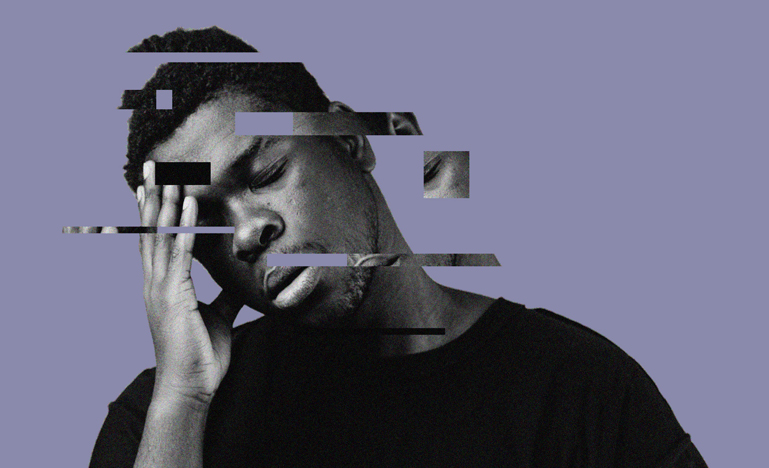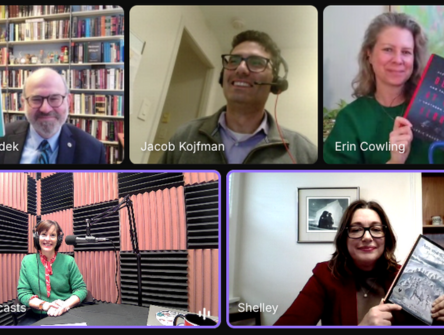Coping with jury duty
People who have served on juries — particularly in trials involving crimes of violence — tend to carry pieces of the experience with them forever.

Sometimes it's the memory of a particularly grisly set of autopsy photos, or a haunting statement from a grieving family member. More often, it's a nagging doubt that keeps them awake nights, years after the fact — the fear that they've somehow made a terrible mistake.
"You try to forget a lot of things," says 'Anna', 70, who served on a jury in a homicide case in Quebec 25 years ago. (At her request, we're keeping her real name confidential.)
"It's the fear of getting it wrong. You try to be careful; you try to be fair. You listen closely to the evidence, to what the experts are saying. But in the end, it's just you and a lot of people you didn't know before, deciding whether to take someone's freedom away."
It's a heavy burden even for the justice system professionals who deal with it daily. For ordinary civilians who've never gotten more than a parking ticket, it can be traumatizing. And they have to handle it alone.
Section 649 of the Criminal Code bars former jurors from discussing what went on during the jury deliberation process — for life. They can't talk about it with spouses or friends, certainly not with mental health professionals. Doing so exposes them to summary conviction.
The law is meant to protect the integrity of the trial process and preserve public confidence in the justice system — but an unintended and unfortunate consequence of this is it leaves suffering ex-jurors with no way to process the experience. Conservative MP Michael Cooper tabled a bill last year to exempt discussions with mental health professionals from the s. 649 ban; it died in the Senate. Now, two senators are trying to bring it back via the Red Chamber.
"They tell you before the trial begins that you can never talk about the evidence with anyone, ever. Then they fill your head with images you can never forget," says Sen. Lucie Moncion, one of the bill's supporters in the Senate. She served on a jury in a homicide case 30 years ago.
"It was a very gruesome case," she recalls. "They showed us these pictures of the victim, the blood, the wounds. You know it's important to see these things; that it's your duty to see them so that you can make a very important decision… a decision that's going to have an enormous impact on the rest of someone's life."
Research conducted by Sonia Chopra at Simon Fraser University in 2002 describes how taxing it can be to serve on a jury. Two-thirds of former jurors interviewed for Chopra's study reported experiencing stress as a result of their jury experience, and nearly half of them said they believed that stress affected the decisions made by their fellow jurors.
A third said they had difficulty sleeping as a result of their trial memories, while almost 20 per cent said the experience left them feeling "more fearful" than before.
Chopra's research also suggests a trial doesn't even have to involve a particularly repugnant crime or ghastly evidence to take a toll on jurors. Of the top ten sources of stress reported by jurors who spoke to Chopra, seven related to the deliberation process itself; the most reported stressor was the task of reaching a verdict, followed by the threat of a hung jury.
That suggests Anna's experience of juror stress, which she attributes more to the awful responsibility involved than to the evidence, is more common than one might think.
"I was in distress all the time," Anna says. "I couldn't stop thinking about it. And when it's all over, they just thank you and say goodbye, and you're done. Nobody talked to us. Nobody asked us how we were doing."
"I was a mess," says Sen. Moncion. "I remember the anger, mostly — feeling angry all the time, angry at a world that lets this sort of thing happen to people.
"I had small children at the time, and they barely saw me. My husband was wonderful. He did his best. But he didn't know anything about it, really — just what he was reading in the papers, which wasn't much. He could never understand how it felt."
Sen. Moncion says she ended up taking a two-year course to train herself to act as her own therapist. Few other ex-jurors would have the same opportunity. Bill S-207, replacing Cooper's defunct bill, would create an exemption from s. 649 for jurors receiving "medical or psychiatric treatment" for "health issues arising out of or relating to" jury duty.
The bill went through first reading in the Senate last month. Its sponsor, Sen. Pierre-Hugues Boisvenu, said he hopes to see the bill pass through the Senate by the spring and be adopted by the Commons by the summer.
"When Michael (Cooper) explained his bill to me, I was shocked," says Sen. Boisvenu. "Why on earth didn't this happen years ago?"
Lauren Shadley, a criminal lawyer with Shadley Bien-Aimé in Montreal, counsels caution: the s. 649 ban exists for a reason, she says, and politicians should be wary of watering it down.
"You need secrecy and confidentiality to promote full and frank debate during sequestration," she says.
"That said, we shouldn't be sending people out of the jury room in worse shape, mentally and emotionally, than when they went in." Shadley suggests establishing a list of court-approved therapists empowered to hear ex-jurors describe deliberations — to keep the number of people in the loop as low as possible.
Ian Carter of Bayne Sellar Ertel Carter in Ottawa, meanwhile, says S-207 is overdue, should trigger a wider conversation about whether the system needs fewer jury trials.
"I've seen juries visibly and audibly react to evidence. I've seen jurors in tears," he says. "Sometimes they're just not equipped to cope with the evidence.
"There should always be a right to a jury trial, but it doesn't have to be a requirement, as there is now in murder cases. Trials have evolved and become far more complex. The evidence juries are asked to consider has become much more sophisticated.
"We don't ask laypeople to make such complex decisions in other walks of life, using information they're not trained to interpret. You're bringing people off the street, asking them to parse dense forensic evidence and then tasking them with making a very momentous decision."


